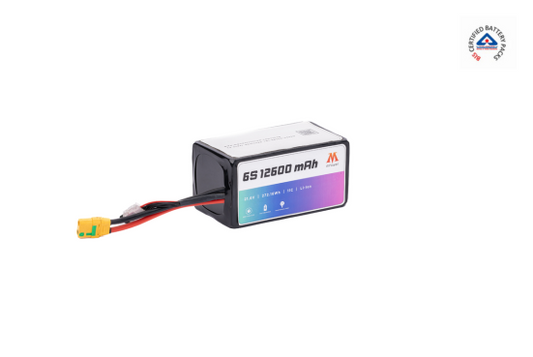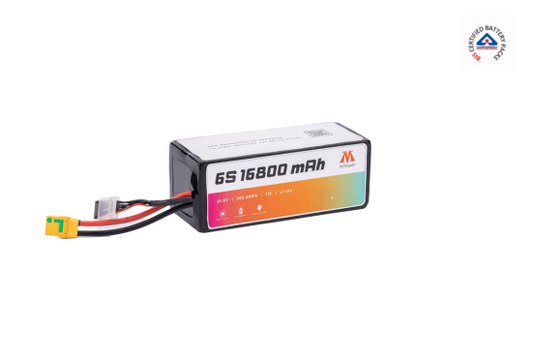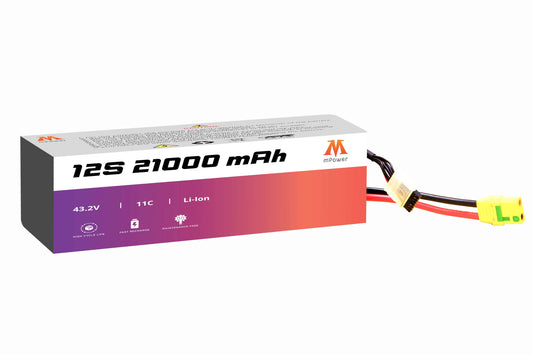
Drones are totally game-changers in today’s tech-savvy world! Whether you're into photography, agriculture, real estate, or even emergency services, these little gadgets have become must-haves for so many industries. How cool is that? Just a quick reminder that if you want to fly your drone legally and keep things super safe, you definitely need to get certified!
Have you ever wondered what it really takes to get that drone certification? With mPower, let's explore the exciting journey of becoming a certified drone pilot!
Drone Training Courses: Why They Matter
Enrolling in a certified drone training course is the initial step in obtaining your drone certification. Expert drone training programs will educate you on all the ins and outs of drone operation, including the latest technology, safety protocols, and applicable laws and regulations. Courses in drone operation often cover the following subjects:
- Familiarize yourself with the inner workings of the drone.
- Getting around the various forms of airspace and restricted flying zones
- Safety guidelines and standards
- Master the art of piloting a wide range of drones
- Preparation for practical flight experience
What Does a Drone Certification Exam Entail?
After finishing the training course, the next step is to take the certification exam. The DGCA certification exam is a knowledge-based multiple-choice test covering safety, drone operations, weather patterns, and airspace regulations. To obtain a drone pilot license, you must pass the test with a score of at least 70%.
The process also includes an application in which you must provide documentation of your expertise and training. This application also undergoes a background check. Although getting certified is a challenging process, anyone who is truly serious about flying a drone professionally will find the result to be well worth the wait.
Drone Pilot Training in India: A Comprehensive Guide to Certification and Compliance
In India, drone pilot training is provided by both government and private institutions approved by the DGCA (Directorate General of Civil Aviation). The DGCA has authorized several Remote Pilot Training Organizations (RPTOs) to conduct these training programs, ensuring they meet the required standards for pilot certification.
Procedure for Drone Pilot Training
Approval of Training Organizations: Organizations wishing to provide drone training must apply for authorization from the DGCA. This includes demonstrating adequate infrastructure, qualified instructors, and compliance with DGCA regulations. The approval process involves a thorough evaluation of the organization's capabilities and adherence to safety standards 45.
Training Requirements: The training program must include a minimum of 35 hours of instruction spread over 5 days, which consists of:
- Classroom sessions covering theoretical knowledge.
- Simulator training to practice flying skills.
- Practical flight training to gain hands-on experience.
Certification Examination: After completing the training, candidates must pass a certification exam administered by the DGCA. This exam tests their knowledge of drone operations, safety protocols, and relevant regulations.
Issuance of Remote Pilot Certificate (RPC): Upon successfully completing the training and passing the exam, candidates receive a Remote Pilot Certificate (RPC), which is mandatory for operating drones above Nano category 5.
Ongoing Compliance and Renewal: The certification is valid for a specific period (typically five years), after which pilots must renew their licenses by meeting any additional requirements set by the DGCA 24.
Government Involvement
The Indian government actively promotes drone usage across various sectors, including agriculture and emergency services. By approving training organizations and establishing regulatory frameworks, the government aims to ensure safe and effective drone operations while fostering industry growth.
Costs of Earning Your Drone Certification
The cost of drone certification varies depending on where you receive your training and which course you choose. Drone training courses often charge a fee that covers instructional materials, flight training sessions, and exam preparation.
Drone course fees typically depend on the level of training (government or private) and whether the course is in-person or online. Other expenditures include test fees, equipment, and any additional training you may require in addition to your normal course.
It is also worth noting that the drone pilot course fees vary depending on the sort of course you choose. Some are basic courses, while others are more specialized. This can be due to specific desires in specific professions, such as looking for courses on aerial photography or surveying.
Choosing the Right Equipment for Your Training
You should have the required drone gear while you train. While some trainings let you experiment with the drones, others require you to bring your own. In these situations, make sure you purchase a reliable drone for your training.
Long-lasting power batteries and a dependable drone will be necessary for your prolonged training sessions. You will undoubtedly need mPower batteries as one of the items you need. In addition to offering consistent performance over a lengthy period, the mPower battery facilitates longer flight durations and steady output. For prospective drone pilots, mPower batteries are the best option because they offer to extend flying time for both simple and complex aerial activities.
The Path to Becoming a Certified Drone Pilot
It will be time for you to begin flying professionally after you graduate, pass your test, and obtain your drone piloting certification. To keep your abilities current, you'll need to keep up with the most recent advancements in drone technology. To further their competence and marketability, many pilots join organizations for professionals, go to ongoing workshops, or undergo extra-specific training after earning their certification.
Conclusion
Earning your drone certification is a worthwhile investment that opens up countless opportunities in various industries. By enrolling in drone training courses, committing to the necessary practice, and preparing for the exam, you can secure a rewarding career as a certified drone pilot. With the right training, quality equipment like mPower batteries, and determination, you’ll be well on your way to mastering the skies.












